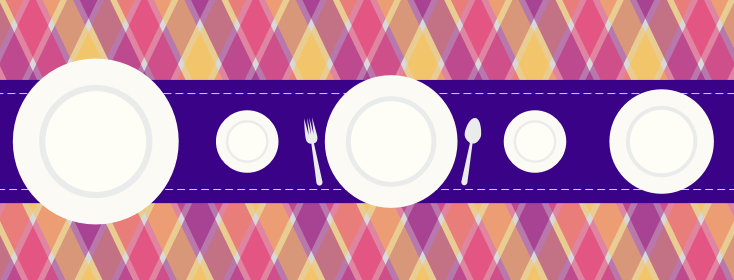Bigger Meals Can Make IBS Worse
One of the things that can trigger IBS symptoms is eating big meals. When you eat, your stomach stretches as it begins to fill up with food. As the food gets digested, it moves into your small intestine. But to make room for this new food, the rest of your gastrointestinal tract needs to get moving too. This happens by a normal physiological mechanism called the gastrocolic reflex. The stomach sends nerve signals to the colon, which makes the muscles of the colon start contracting. This then helps the contents of your gastrointestinal tract to move onwards. And when the stimulus is strong enough, it can promote a bowel movement.
The bigger the meal, the stronger the push
When you eat larger meals, even more room is needed in your gastrointestinal tract. So you can end up with a stronger stimulus to your colon to get things moving. But if things don’t actually get moving, particularly if you’re prone to constipation, you can end up with muscle spasms that cause abdominal discomfort and pain.
On top of that, big meals will also cause your abdomen to swell. That’s because as your stomach stretches from the food, it’s going to push outwards since there’s not much spare space in your abdominal cavity. This can create an uncomfortable feeling of bloating and distension in your abdomen. And that’s before even considering the effect of the foods that you’ve eaten and whether they might cause bloating in their own right.
So essentially, bigger meals cause your abdomen to swell because of the amount of food that you’re putting in there. But they also cause the gastrointestinal tract to become more active, which can lead to pain sensations in people with IBS.
Eating smaller meals can prevent this problem
When you eat smaller meals, the stomach doesn’t get as stretched as it does with larger meals. So smaller meals remove one part of the problem… the swelling of the abdomen due to the new food. And since the gastrocolic reflex is stimulated by stretching of the stomach, smaller meals have less chance of stimulating this reflex.
That said, the gastrocolic reflex isn’t only triggered by meal size. Other things can trigger it too, including the gut irritants. This includes things such as caffeine, alcohol and fatty foods. But by choosing smaller meals, you’re less likely to trigger the reflex than if you were eating larger meals.
This is why smaller meals can help IBS
Some people with IBS find that eating more smaller meals, which are more evenly balanced in size, helps to keep their symptoms more stable. So if you find that one or more of your meals are larger than your other meals, you may like to try eating smaller meals more often. One way to do this is to make snacks a little larger so that you can decrease the size of nearby meals. Another option is to eat more for breakfast (since many people eat smaller breakfasts), and in turn downsize your larger meal.

Join the conversation